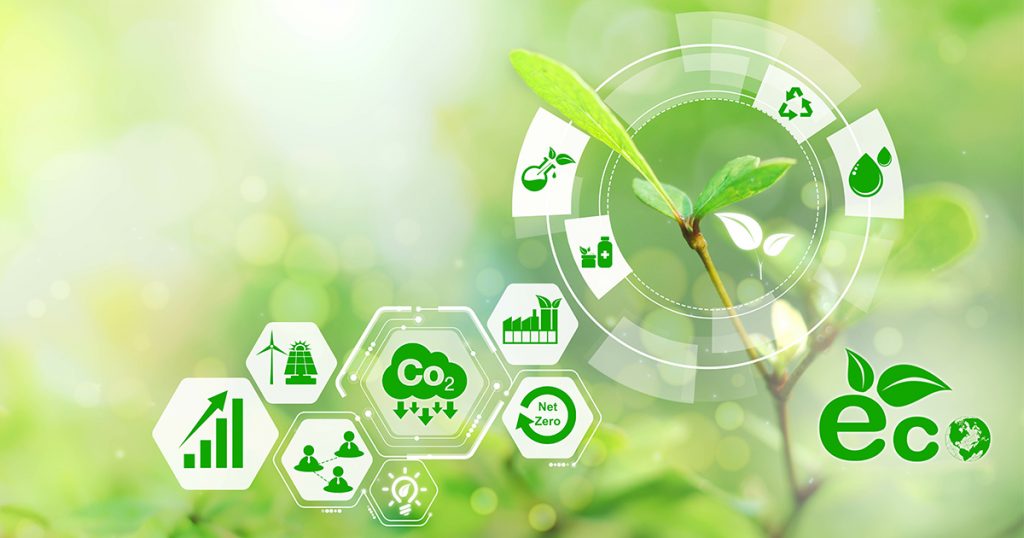 Call for Papers
Call for Papers
The ECS Journal of Solid State Science and Technology is publishing a collection of papers on sustainable materials and devices.
Advanced materials are pervasive in sustainable energy storage devices, sensors, and actuators. These devices consist of multiple materials combined at multiple scales (from nano to submicrons) that actively interact during their functional history in a manner that controls their collective performance as a system at the global level. The principal motivation for this focus issue is to provide a place to publish the science that controls the properties in emerging energy storage materials, and sensors as a foundation for design of sustainable development for the next generation. This virtual issue focuses on papers covering the following topics:
- Advanced synthesis procedures to create novel materials for energy storage applications;
- Emerging materials for supercapacitors and supercapatteries;
- Emerging materials for metal-ion batteries, ultrabatteries, flow batteries, and redox flow batteries;
- Advanced imaging and characterization techniques;
- New constitutive theory to correlate material properties to energy storage;
- Novel designs in electrodes and devices for energy storage;
- Flexible energy storage devices for wearable electronics;
- Modelling and simulation to elucidate fundamental phenomena in emerging nanostructures;
- Machine learning of emerging materials;
- Sensors and actuators, additive manufacturing, healthcare, agriculture, biology, toxicology, flexible electronics, energy storage, clean energy, clean water, clean air, catalysts, MEMS, NEMS, carbon capture, carbon neutrality, composites, ai/machine learning and materials discovery, ecosystem restoration (land and underwater), plastics, materials recycling, sustainable engineering.
The issue is open to all interested authors who may submit review, critical review, perspective, methods, communication, and original research articles.
Accepting Submissions: January 26, 2023 | Submission Deadline: April 26, 2023
Guest Editors
Sheng-Joue Young, National United University, Taiwan | youngsj@nuu.edu.tw
Praveen Shekher, Washington State University, U.S. | praveen.sekhar@wsu.edu
Pratima Solanki, Jawaharlal Nehru University, India | partima@mail.jnu.ac.in
Mohammad Khalid, Sunway University, Malaysia | Khalids@sunway.edu.my
Bernaurdshaw Neppolian, SRM Institute of Science and Technology, India | dean.research@srmist.edu.in
Muhammad Norhaffis Mustafa, Sunway University, Malaysia | norhaffism@sunway.edu.my
Rashmi Walvekar, Xiamen University (XMUM), Malaysia | Rashmi.Walvekar@xmu.edu.my
Technical Editors
Ajit Khosla, Xidian University, China, and Yamagata University, Japan | ajit.khosla@electrochem.org
Stefano Cinti, Università degli Studi di Napoli Federico II, Italy | stefano.cinti@unina.it
Editor-in-Chief
Krishnan Rajeshwar, The University of Texas at Arlington, U.S. | rajeshwar@uta.edu
Articles are published in a standard issue of the journal as they are accepted. If selected at submission, accepted papers are published online in the ECS Digital Library on IOPscience within 24 hours of scheduling for publication. The version of record is published online within approximately 10 days of final acceptance.
Visit the ECS website for author submission instructions and requirements for each article type.
OPEN ACCESS: Authors choosing to publish open access agree to pay an article processing charge (APC) if their papers are accepted. APCs are discounted by 75 percent for ECS members and waived for authors from ECS Plus subscribing institutions. Check if your institution subscribes to ECS Plus. Discounts are applied at the time of payment.

